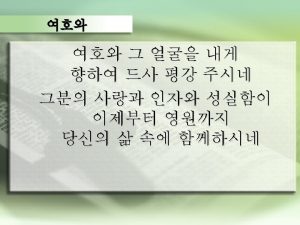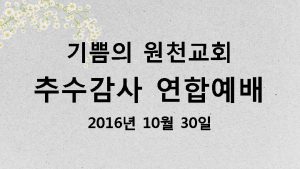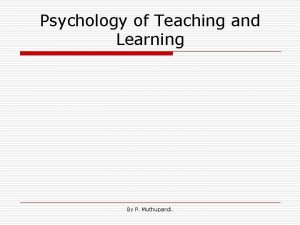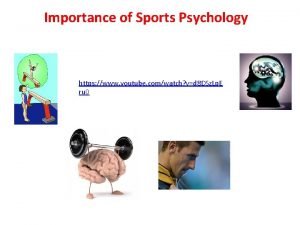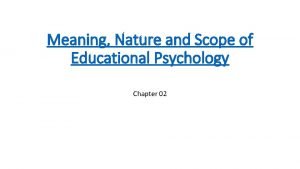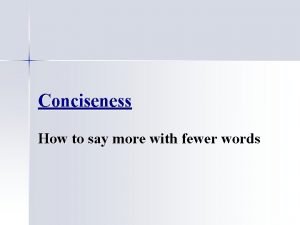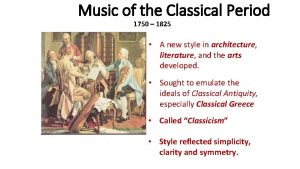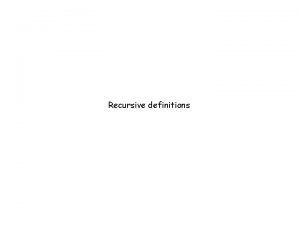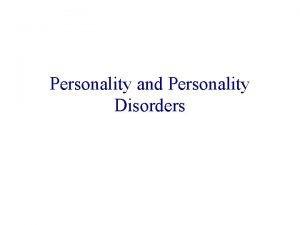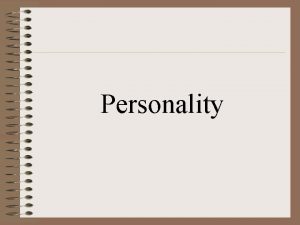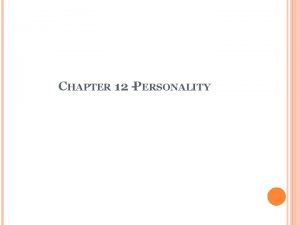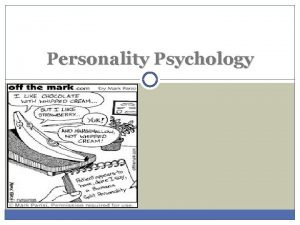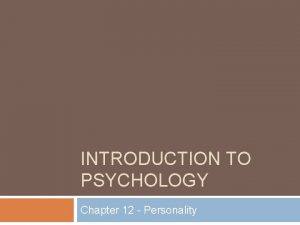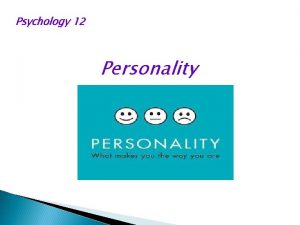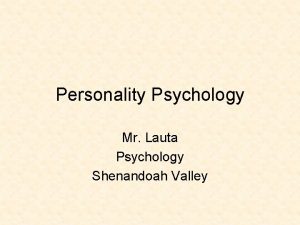Psychology Personality Personality Definitions The more or less














- Slides: 14

Psychology Personality

Personality - Definitions ‘The more or less stable & enduring organisation of an individual’s character, temperament, intellect and physique which determines their unique adjustment to the environment’ Hans Eysenck (1960) ‘Personality is the underlying relatively stable psychological structures and processes that organise human experience and shape a persons actions and reactions to the environment’ Lazarus & Mowatt (1979) ‘The relatively stable and enduring aspects of individual which distinguishes them from other people, making them unique but at the same time permit a comparison between individuals’ Richard Gross (1992)

Theories to be covered. . . • Trait theory, Situational & Interactional Approach • Martens Schematic View • Psychodynamic Approach • Type A and Type B • Note: All these must be included in task 2!!

Trait Theory • “People are born with established personality characteristics” • Inherited at birth. • Stable • Enduring • consistent in all situations. BEHAVIOUR = FUNCTION OF PERSONALITY +ve = Can be easily measured through questionnaires -ve = Does not take into account environmental influences. It is not a true indicator of behaviour

Situational Approach. . . • The situational approach argues that personality and behaviour are influenced more by the situation or environment than by traits. • Example: - Jonny Wilkinson • Shy in interview • Aggressive on pitch

Interactional Approach. . . • Situations and traits on their own cannot predict behaviour. Behaviour occurs from the interaction between inherited traits and learned experiences” • Example: • A person with aggressive personality traits won’t always act aggressively • If they are put in a situation that encourages those aggressive traits the aggressive behaviour may be triggered

Martens Theory. . .

Psychological Core. . . • This is the most basic level of your personality. Areas include: • • Attitudes and values Interests and motives Beliefs Also known as ‘the real you’ • Example of values: - Family, Friends and Religion

Typical Responses. . . • This is how we respond to the world around us • Different situations bring out different responses • Example: • First day of new job • Shy • Apprehensive • This may not be a true reflection of personality but comes across due to the situation

Role Related Behaviour. . . • How you act based is based on your social situation • Your behaviour must change as your situation changes

FREUD - PSYCHODYNAMIC THEORY • Freud believed that personality is made up of 3 components: id ego and super ego. • The id represents our basic instincts over which we have no control eg. Sleeping when tired or in sports, a need to win. • The ego seeks to satisfy the basic need. To ‘win at all costs’ a player may might resort to aggressive actions, fouling opponents or other forms of cheating. • The super ego is the moral arm or social conscience. It judges whether behaviour is acceptable. In sporting situations it helps to control aggression and keep players within the rules of the game.

Type A. . . • In a sporting environment they are seen as extroverted. • • They train constantly Are unhappy with delays React badly to imperfections Get stressed easily Hostile Are outcome/result based Competitive

Type B. . . • In a sporting environment they are seen as introverted. • Patient • Relaxed • Easy-going • Type B may still be as hard working as Type A however they are able to relax more and are less hostile.

How does Personality effect Sport Performance. . . • Type A v Type B
 Lirik lagu more more more we praise you
Lirik lagu more more more we praise you More more more i want more more more more we praise you
More more more i want more more more more we praise you Less religious and less idealized than greek art
Less religious and less idealized than greek art Scope of educational psychology slideshare
Scope of educational psychology slideshare Youtube sports psychology
Youtube sports psychology Describe the scope of educational psychology
Describe the scope of educational psychology Tweet less kiss more
Tweet less kiss more Le corbusier less is more
Le corbusier less is more Coco chanel weed
Coco chanel weed Translation by a more neutral/less expressive word
Translation by a more neutral/less expressive word How to worry less and enjoy life more
How to worry less and enjoy life more Regularly meaning
Regularly meaning 1750 1825
1750 1825 Theme of the poem she walks in beauty
Theme of the poem she walks in beauty Leading digit
Leading digit
